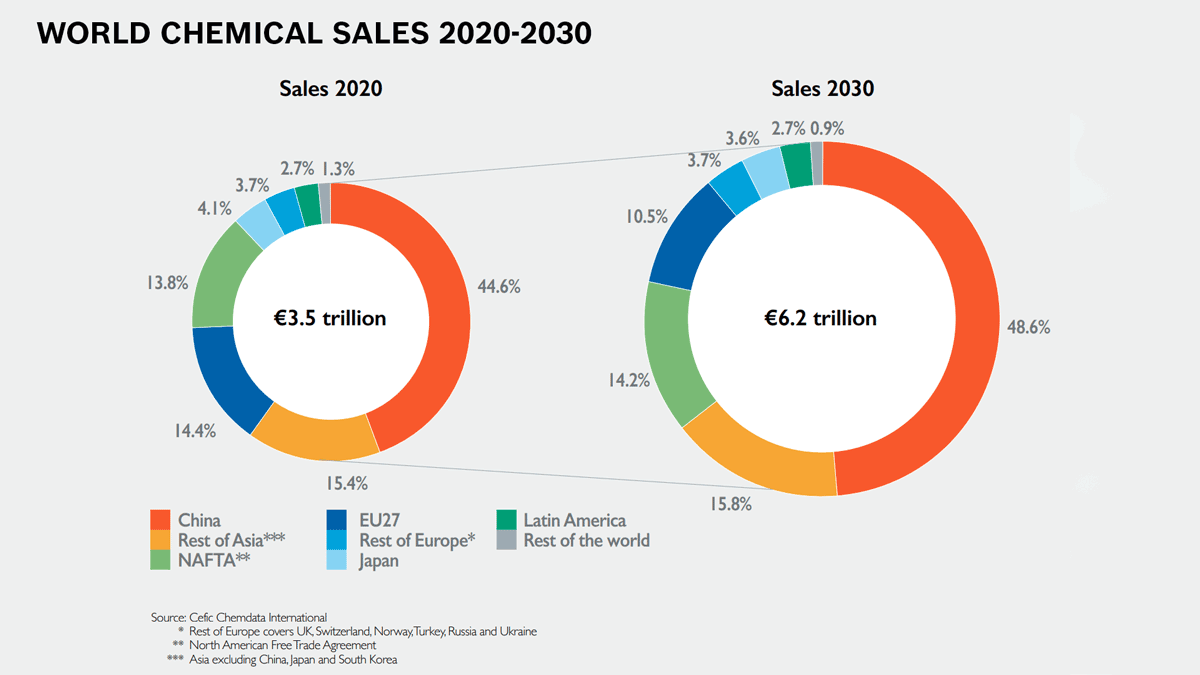EU Industry Days 2022: EU Chemical Industry Embarking on a Green Deal Transition Pathway
Marking the start of a crucial journey, leaders from diverse backgrounds joined panels during the EU Industry Days 2022 to outline their expectations of the chemical industry’s Transition Pathway; a co-creation process led by the European Commission aimed at accelerating industry towards the European Green Deal goals.
As global chemicals output is expected to double or even triple in the next decade, while limited growth is anticipated in Europe, Marco Mensink, Cefic Director General, addressed the double twin transition facing the European chemicals industry; to become climate neutral, increase circularity, digitalise, and implement the Chemical Strategy for Sustainability, whilst also remaining globally competitive. He asked, “how can we build a pathway so that investments in new technologies happen in Europe?” As a specialty chemicals region generating 40 billion euros in value, Marco called for close attention to be given to the small and medium-sized (SME) companies that depend on a strong European market.
Martin Brudermüller, CEO of BASF and Cefic President, echoed concerns as an ambassador of SMEs who hears “cries of help” from small companies as they prepare to transform. “We need confidence and investment security for European industry, and we need to generate the business case, or the transition will simply not work” he said.
The Transition Pathway comes at a very good time said Rafael Cayuela, Chief Strategy Officer and Corporate Chief Economist at Dow, referring to the second largest recession Europe has witnessed this century. The challenges are massive, as is the need for innovation in the industrial transformation “we don’t have the time, and we don’t have resources or innovation to be wasted,” he noted.
Acknowledging the vital role of chemicals to many value chains and enabling products for the transition, Johan Landfors, President of Technology Solutions at Nouryon, recognized that while alternative chemicals do exist, the right chemistry is needed. He said “New chemistry takes time. We need to drive innovation and have the right framework to ensure it’s done in a proper way”.
And from a company that has successfully transformed its operations over the past decade while remaining resilient and profitable, Mercedes Alonso, Executive Vice President, Renewable Polymers and Chemicals at Neste, outlined critical factors for the chemicals industry. She called for industry to jointly progress with its entire value chain, to take risks as “we don’t have time to lose” and to “stop looking for the silver bullet”; it will take all kinds of solutions to combat the climate crisis.
As the work for the Transition Pathway begins, Marco called for it to be “practical”, “detailed” and “understandable”. The Pathway must clearly set out the milestones, consider the ripple effect of the chemicals industry on value chains and the economy and it needs to be jargon free.



